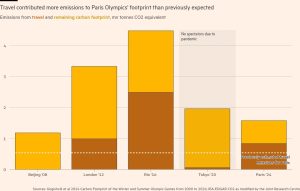NHS spending on new drugs not best use of money, says study
Unlock the Editor’s Digest for free
Roula Khalaf, Editor of the FT, selects her favourite stories in this weekly newsletter.
Funding for expensive new drugs in England over the last two decades would have been better spent elsewhere in the NHS, according to a new study.
The report published in The Lancet on Thursday evening found that the rollout of such drugs had come at a “heavy cost to the health of many others” as the cost was diverting resources from other kinds of healthcare that would have helped more patients.
The review of health data between 2000 and 2020 showed the rollout of new drugs — such as trastuzumab, a cancer treatment — delivered 3.75mn additional years of full health to patients at a cost of £75bn.
However, the authors of the report conclude that redirecting those funds could have added 5mn years of full health for NHS patients if it had been spent on existing services, such as earlier diagnosis of disease.
The National Institute for Health and Care Excellence (NICE) judges which medicines offer value for money to the NHS. NICE currently has an upper cost-effectiveness threshold of £30,000 per quality-adjusted life year — a measure of the extra length and quality of life provided by a drug — for recommending a treatment.
The report notes that this is higher than the NHS’s “typical spend of £15,000” for the same outcome.
“This allows companies to charge prices that are higher than the NHS pays to deliver similar health benefits using existing treatments and services,” the report said.
The new research will intensify debate over the price of drugs after the UK government and the pharmaceutical industry recently agreed that NICE would maintain its cost effectiveness threshold until 2029.
Huseyin Naci, associate professor of health policy at the London School of Economics and Political Science (LSE) and lead author of the report, said: “New drugs can be a lifeline for patients who have significant unmet clinical needs. However, innovative drugs are expensive, and their costs do not always justify the benefits they offer.
“After more than a decade of under-investment in the NHS, it may no longer be justifiable to have a NICE threshold that doesn’t reflect the amount the NHS needs to spend to generate health.”
He added that lowering the threshold would allow the NHS to negotiate better prices for new medicines.
The researchers behind the study were from the London School of Economics and Political Science, the University of York in the UK and Brown University in the US.
An NHS Spokesperson said innovative medicines were “delivering improvements in quality of life that would be impossible to achieve otherwise”.
They added that the NHS was “an international leader in using lower cost biosimilar and generic medicines”, comprising 85 per cent of all prescribing, “ensuring the total affordability of the NHS medicines budget”.
A NICE spokesperson said: “Spending money on new medicines does create an opportunity cost, displacing services elsewhere in the health system. That’s why NICE’s role is vital: we carefully evaluate new treatments and recommend only those that offer value-for-money for the taxpayer.”
“Without NICE’s input, funding decisions would be taken locally, leading to inequitable patient access — the ‘postcode lottery’ — and potentially higher costs.”
Victoria Jordan, head of market access policy at the Association of the British Pharmaceutical Industry, said: “Ultimately, while complex economic methods are an important tool for decision makers, they fail to capture the full benefit a new treatment, sometimes the only treatment available will provide to patients, their families and carers, and society more broadly.”
#NHS #spending #drugs #money #study






